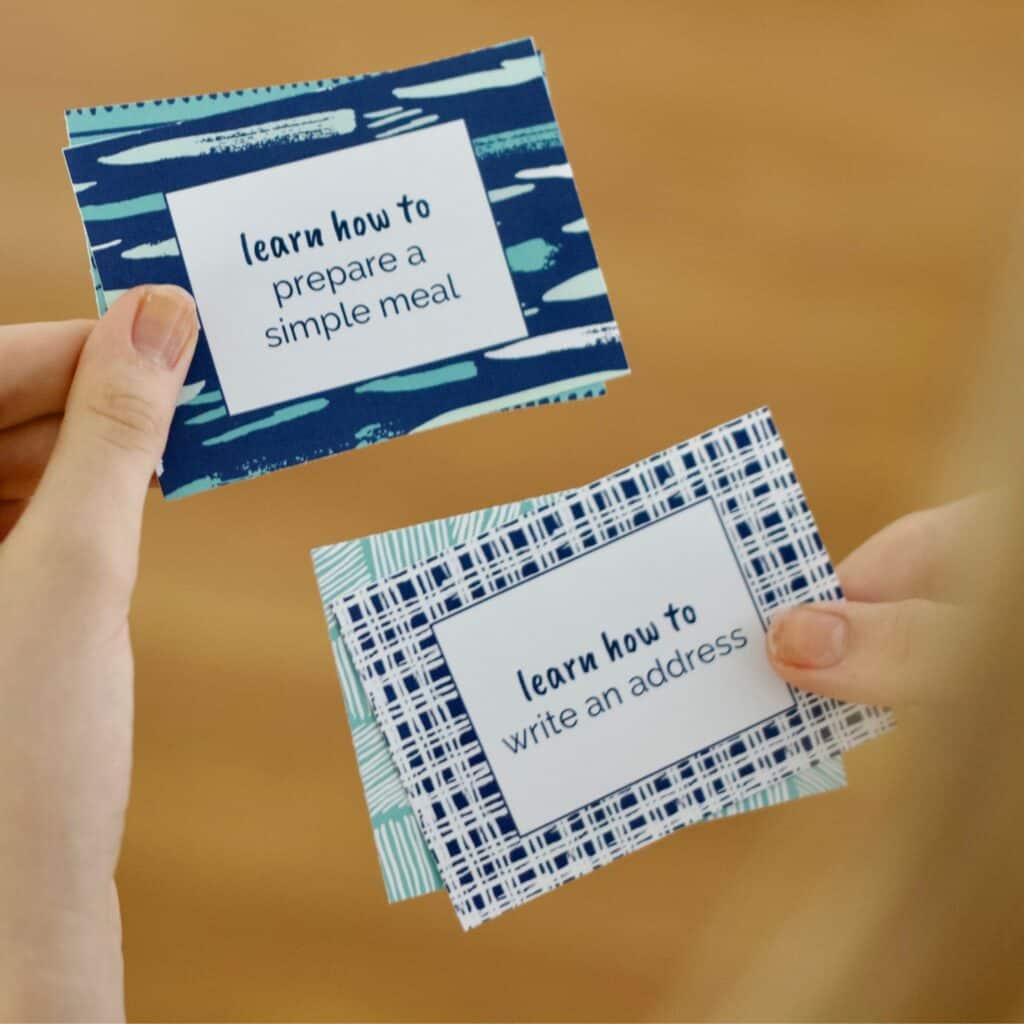These 5 Family Rules are Essential for Raising Well-Adjusted Kids
Established family rules help everyone know what’s expected of them. Here’s your guide to best practices for developing and establishing your family’s rules. Plus, five rules every family should have.

“No one told me I had to clean up!” my daughter exclaimed after I asked her to put away her paint, paper, and brushes strewn across the kitchen table.
After an afternoon of painting, asking her to clean up her mess seemed to be a reasonable request. But she claimed since no one had made her aware that she needed to clean up ahead of time, she didn’t have to.
This wasn’t the first time I’d heard the no-one-told-me-so-I-don’t-have-to comeback. As ridiculous as it sounded to me, my daughter clearly felt it was a justifiable answer.
From an early age, she had established that she didn’t like being told what to do. Or being caught off-guard with rules or expectations that she hadn’t been made aware of beforehand.
When situations like these arose, it was always challenging to come to a resolution. Often, I’d state the expectation and she’d oppose it. An argument would follow and I’d have to declare that there would be no [fill in the blank with the most desirous activity] until action was taken.
Unfortunately, it took me years to recognize the obvious answer to this dilemma: My daughter wasn’t necessarily rebelling against cleaning, or whatever else I was asking her to do. She was rebelling against a lack of control or a clear understanding of expectations ahead of time.
Established family rules were the answer.
Why families need rules
Establishing family rules is important. Without clear rules, expectations or boundaries, our children will be unprepared for life outside our home, whether it’s in school, spending time with friends, or eventually holding a job and living on their own.
Household rules help shape kids’ understanding of what’s appropriate and inappropriate behavior. And our homes are the perfect place for kids to practice following (and testing!) rules.
Some family rules will be constant, such as showing respect to one another or not lying.
Other family rules will become less necessary over time as kids grow and mature. For example, most older children know it isn’t appropriate to throw food on the floor so this rule will fall by the wayside as kids get older.
Other rules will become increasingly important as kids grow to be teenagers – such as setting expectations around the use of electronics or social media, curfews, and completing homework.
The magic that happens when kids help create rules
Getting all members of the family to create a list of rules, and including kids in the process, leads to a number of benefits.
Like my daughter, many kids resist the rules or expectations parents place on them because the rules seem arbitrary, dictatorial, and unfair.
Involving kids in the process of creating rules lets their voices and opinions be heard. It also makes children feel they have greater ownership over the rules that govern them, which in turn makes it more likely they’ll obey them.
The perfect time to create and refine family rules is during a family meeting. It may be helpful to create your initial list of family rules over several meetings so kids don’t get overwhelmed or bored. But writing down important rules is helpful. That way no one can claim they didn’t know or understand an agreed-upon rule later on.
Rules can then be refined and added to as issues arise or kids mature. Getting kids involved in this process also teaches them valuable problem-solving, communication, and collaboration skills that will help them in all areas of life.
Younger children will only be able to have a nominal role in creating family rules since any child younger than four or five isn’t developmentally ready to fully take on this task. However, it’s beneficial to still discuss rules with toddlers ahead of time so that a rule doesn’t feel arbitrary when it’s presented.
Examples of rules every family needs:
Every family will need to decide the rules that best suits them. However, a few general themes need to be addressed when coming up with family rules.
Depending upon your family dynamics, it may not be necessary to write down rules for each specific challenge that could arise. For most families, writing down a few general guidelines should be enough. These should include:
Safety
Physical safety rules are among the first rules parents find necessary to enforce. As their infants emerge into stumbling toddlers who want to touch and grab anything within reach, safety can be a concern.
Examples of physical safety rules could include:
- Throwing objects is never allowed
- Parents need to be present when anyone under age ten uses the stove
- Running, cartwheels, or handstands are not allowed indoors
Kids and families also need to feel they are emotionally safe at home. You can create a safe space as a family by discussing and enforcing emotional safety rules.
Examples of emotional safety rules include:
- Every family member’s feelings are valid and will be heard
- No emotions or feelings are bad, but it’s important to express them with respect
See related: The Seven Emotional Needs of a Child That Influence Confidence and Self-Esteem
Interested in getting your kids started on chores? My four-lesson course will teach you how to get started, avoid nagging & power struggles, and keep your kids motivated. Click here or the image below to learn more.

How to treat one another
One of the most important family values is to treat each other with kindness and respect. For some families, especially those with more than one child, this can take work and practice so it’s helpful to have established rules.
Children will benefit from learning the importance of the appropriate ways to treat other people. As they leave home and enter the real world, our kids will have a better sense of appropriate behavior if they’re able to practice within the safety of their own home.
Examples of rules about how to treat one another:
- No family member can insult another family member and must find a calm and respectful way to express their emotions (no yelling)
- Expressing emotions through physical actions such as hitting or throwing is never permitted
- Family members must respect each other’s property and ask permission to use something that belongs to someone else
See related: Why Do Kids Lie? (And What You Should Do When it Happens)
Honesty and morality
All parents can agree it’s important to teach our children right from wrong and the value of being honest.
Kids learn morals and honesty two ways: by seeing the example of important adults in their lives and by being taught these concepts. Frequent conversations with kids about what you believe and why can form the foundation to this teaching. And adding these beliefs to your family rules can make the concepts more concrete to kids.
Examples of family rules about honesty and morality include:
- Always tell the truth
- Show kindness whenever possible
- Treat others the way you would want to be treated
- Stealing or taking from someone else is always wrong
See related: Why Your Misbehaving Child Won’t Stop and What to Do About It
Personal hygiene
If kids had their way they’d never take a bath, they’d forgo brushing their teeth for days, and clipping nails would simply be forgotten.
It’s important that kids learn to incorporate personal hygiene into their daily or weekly routines. Kids often forget (or rather, “forget”) the importance of these rules so they’ll need plenty of reminders and practice, possibly for years to come.
Examples of rules about personal hygiene include:
- Brush teeth every morning and every evening
- Bathe or shower regularly
- Clip nails once a week
- Brush hair every morning or evening
See related: 70+ Daily Routine Cards for Kids
House cleaning and organization
When more than one person shares a living space, it’s important for everyone to be on the same page regarding the house’s cleanliness and order.
That’s why it’s helpful to discuss, agree upon, and write down expectations. A few examples of house cleanliness and organization rules could be:
- You need to clean up your own mess within an agreed-upon time
- Shoes and coats need to go in their proper place when you return home
- Beds need to be made every morning before breakfast
- Toilet seats need to be put down after use
See related: Age-Appropriate Household Chores for Kids – Lists by Developmental Stage
Best practices for enforcing rules
If you’ve already developed rules as a family, then you’ve taken the first step toward encouraging kids to follow them.
Kids often resist rules when they feel those rules have been created and presented arbitrarily. When kids feel a part of the process in developing and creating family rules, they have a greater sense of agency and ownership over those rules.
It’s also helpful to determine as a family (or better yet, let the kids decide!) what consequences will result when a rule isn’t followed.
Say, for example, the family agreed that everyone needs to put breakfast dishes in the dishwasher when they’re finished with their meal. A consequence of this rule not being followed could be that that person needs to help clean up the kitchen after dinner that evening.
It’s important that the agreed-upon consequence not feel like a punishment but more like a natural outgrowth of the broken rule. It’s also beneficial to let kids take the lead in coming up with consequences. This helps get their buy-in when the time comes to follow through.
Other considerations for effectively enforcing family rules
After family rules are created, the next step is to make sure they’re followed. While some kids will be eager participants in determining who has followed the rules, it will largely be left to parents to provide the consistency and follow-through necessary to keep rules relevant.
And it should go without saying that parents also need to obey any established rules. Kids are highly attuned to hypocrisy or inequality, and they will begin to reject rules if they sense adults aren’t being consistent.
Remember, however, that kids, and especially young kids, easily forget rules and may need reminders about why the family agreed to certain rules. It helps to have patience and keep in mind that children don’t always neglect rules on purpose but are still learning.
When kids are given the chance to develop and refine family rules, they’ll naturally feel greater self-esteem, maturity, and agency. These good feelings alone can lead to better behavior, and more cooperation and obedience from kids.
And may mean (eventually) that they’ll willingly put their art supplies away…possibly even without being told.
Ready to teach your child life skills? These cards can help! Each card in this eighty-one deck contains a skill your child can begin practicing with you or on their own. Click here or the image below to learn more.
See related:
Everything You Need to Know to Run a Successful Family Meeting
Siblings Without Rivalry: How to End Sibling Fights and Bring Peace to Your Home
Why Your Misbehaving Child Won’t Stop and What to Do About It
What to do next…
1. Subscribe to Self-Sufficient Kids’ email list.
Like what you read here and want to learn more? Every Thursday I’ll send you one parenting tip about raising self-sufficient kids and creating the peaceful relationship you yearn to have with your child. Click here to sign up.
2. Take one of my quizzes!
Find out if you’re raising a self-sufficient kid (click here) or if you’re doing too much for your kids (click here). At the end of each quiz, you’ll be asked to provide your email address to see the results.
3. Get your kids started on chores.
Learn how to get your child started on chores (& keep them motivated + avoid power struggles) by enrolling in my Get Your Kids Successfully Started on Chores course. Click here to learn more and sign up.

About Kerry Flatley
Hi! I’m Kerry, the mother of two girls and a certified parent educator. I believe it is possible for parents to have a supportive, loving, and warm relationship with their kids while raising them to be independent and ultimately self-sufficient. Over the years, I’ve read numerous books and articles that support this belief and I’ve put these ideas into practice with my own kids. Read more about me and Self-Sufficient Kids here.



